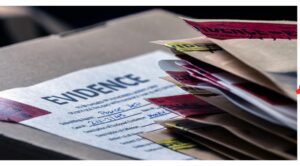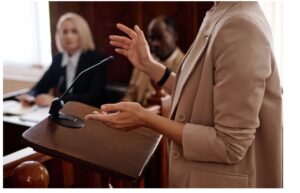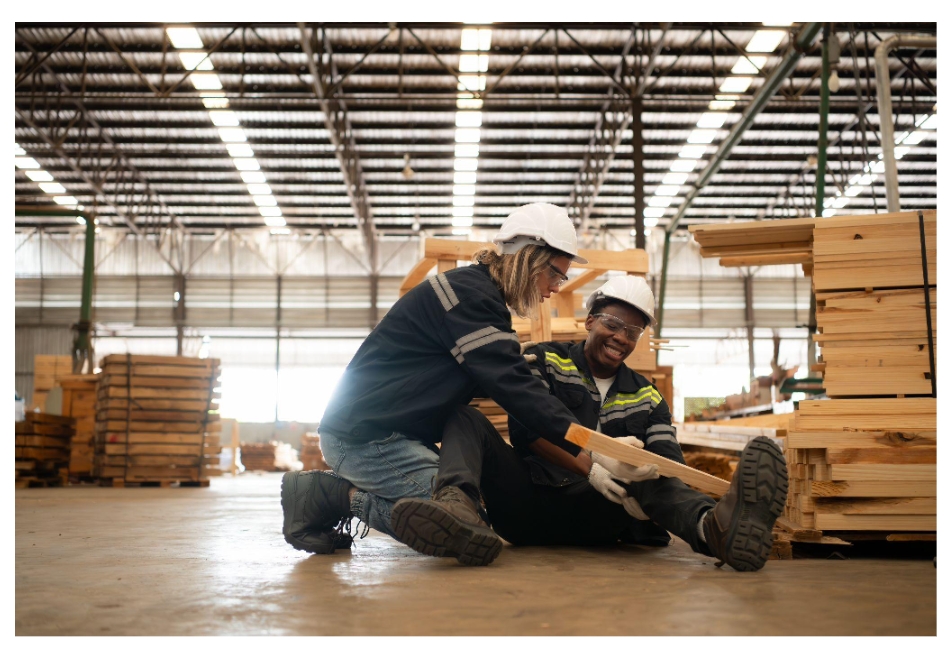[ad_1]
When life throws unexpected challenges our way, such as a personal injury, navigating the legal landscape can feel like wandering around without a map. Luckily, understanding the crucial steps and strategies involved in proving liability in personal injury cases can serve as your compass, guiding you through the often complex paths of legal proceedings.
In this blog, we’ll delve into the essential steps and strategies necessary for proving liability, empowering you with the knowledge needed to pursue the justice you deserve – effectively.
Unlocking Justice: Key Tactics for Proving Liability Post-Injury
Personal injury cases encompass a broad spectrum of incidents, ranging from slip-and-fall accidents to motor vehicle collisions and medical malpractice. At their core, these cases involve harm caused to an individual due to the negligence or wrongful actions of another party. Whether it’s physical injuries, emotional trauma, or financial losses, the repercussions of a personal injury can be profound and far-reaching.
Proving liability is paramount in personal injury cases as it establishes the legal responsibility of the defendant for the plaintiff’s injuries and losses. Without sufficient evidence demonstrating the defendant’s negligence or wrongful conduct, obtaining compensation and holding the responsible party accountable can be an uphill battle.
If you’re from San Francisco, you can find expert legal help to help you fight for what you deserve here: http://dgglaw.com/personal-injury. If not, make sure you do your diligent research and find experienced experts specializing in personal injury claims.
Step One: Gathering Evidence

Imagine building a house without a solid foundation – it’s bound to collapse under pressure. Similarly, proving liability in a personal injury case requires a sturdy foundation of evidence to support your claims. Gathering evidence not only strengthens your case but also provides clarity and credibility in the eyes of the court.
But what types of evidence are needed to help you prove your case?
- Physical Evidence: Photographs of the accident scene, damaged property, or defective products can serve as compelling visual evidence. Preservation of physical evidence is crucial to prevent tampering or loss of critical information.
- Medical Documentation: Medical records, diagnostic reports, and bills documenting the extent of your injuries and treatment are indispensable in proving the causation and severity of your damages.
- Eyewitness Testimony: Witness statements from individuals who observed the accident or its aftermath can provide invaluable firsthand accounts corroborating your version of events.
- Expert Opinions: Expert testimony from medical professionals, accident reconstruction specialists, or other relevant experts can lend credibility to your case by offering specialized knowledge and analysis.
In the battle for justice, you’ll need to require every bit of evidence within your grasp to tip the scales in your favor. A skilled personal injury lawyer can also help you with this. Now, let’s break down what you can do and the proactive measures you can take to help your case in more detail.
-
Preserving Physical Evidence
When it comes to proving liability in a personal injury case, physical evidence can be the cornerstone of your argument. As the individual who has sustained the injury and is filing a claim, there are proactive steps you can take to preserve and gather crucial physical evidence. This might include taking photographs of the accident scene, documenting any visible injuries, and retaining damaged property or defective products as evidence.
Additionally, securing contact information from witnesses who can corroborate your account of events can significantly strengthen your case (we’ll get to that later). However, navigating the legal intricacies of handling physical evidence requires expertise and finesse. A knowledgeable lawyer can guide you through this process, ensuring that evidence is collected and preserved in a manner that adheres to legal standards and maximizes its impact in court.
Moreover, it’s important to recognize that authorities may not always do a thorough job of collecting and preserving all relevant evidence. This is where the expertise of a skilled lawyer becomes invaluable. They can step in to fill any gaps left by the authorities, conducting independent investigations and ensuring that no vital evidence slips through the cracks so you can pursue the compensation you rightfully deserve.
-
Obtaining Medical Records
Your medical records serve as a chronological narrative of your injuries, treatment, and recovery journey. To obtain these records, you’ll need to authorize the release of your medical information to your attorney or directly request them from healthcare providers involved in your treatment.
How can medical records help prove liability? They are like a roadmap for tracing the impact of the accident on your physical and emotional well-being. They provide concrete evidence of your injuries, the medical interventions required, and all the associated costs. By linking your injuries to the defendant’s negligence or wrongful actions, medical records play a pivotal role in establishing liability and quantifying your damages.
-
Witness Statements

In the courtroom drama of a personal injury case, witnesses act as the supporting cast, adding depth and credibility to your narrative. Their firsthand accounts offer independent perspectives, reinforcing the validity of your claims and countering any attempts to dispute the facts. So, how can you obtain witness statements?
Identifying and contacting witnesses may require diligent investigation and outreach efforts. Your personal injury attorney can assist in locating witnesses, conducting interviews, and documenting their statements for future use. Promptly gathering witness statements ensures that crucial details are preserved before memories fade or witnesses become inaccessible.
-
Police Reports
In cases involving motor vehicle accidents or criminal conduct, obtaining a copy of the police report is essential. Law enforcement officers document their observations, statements from involved parties, and any citations or charges issued at the scene of the incident.
Police reports serve as an official record of the accident, providing an unbiased perspective from trained professionals. They may contain critical details such as weather conditions, road hazards, or witness statements recorded by responding officers. Utilizing the information contained within police reports strengthens your case by corroborating key facts and lending credibility to your claims.
-
Expert Opinions
Besides police reports, expert opinions are the crown jewels of a personal injury case, offering invaluable insights and validation to bolster your claims. A skilled lawyer can easily tap into a network of reputable experts, from medical specialists to accident reconstructionists, who possess the knowledge and experience to dissect complex issues and provide expert testimony.
These professionals serve as beacons of clarity in the fog of uncertainty, lending their expertise to interpret intricate medical diagnoses, assess liability, and quantify damages. By harnessing the power of expert opinions, coupled with strategic legal guidance, you can fortify your case with a formidable arsenal of evidence, paving the way for a favorable outcome in the pursuit of justice.
Stand Strong, Demand Justice: Take Charge of Your Personal Injury Claim

When it comes to legal proceedings, proving liability requires a strategic blend of evidence, expertise, and advocacy. By adhering to the essential steps and strategies outlined in this guide, and with some help from experienced legal experts, you can navigate the complexities of personal injury litigation with confidence and determination.
Remember, each piece of evidence is a brushstroke on the canvas of justice, painting a compelling portrait of accountability and restitution. Good luck, and fingers crossed for a favorable resolution!
[ad_2]
Source link
